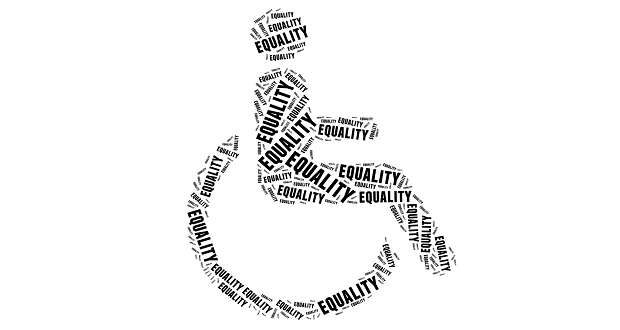
As we enter yet another political season where we continue to witness alarming polarization and seemingly no unifying themes, it is disheartening to see the United States disintegrate further into “us and them” rhetoric. Liberal Democrats are accused of being too focused on “identity politics”—advocating for women, people of color, Muslims, and the LGBTQ community—while neglecting themes that would appeal to everyone, in particular, working-class whites. Conservative Republicans are charged with not caring about the groups that Democrats are more apt to advocate for, and even attempting to pass legislation that would set back progress that has been made over the past 100 years or so, around topics like abortion and immigration rights.
So, what is identity politics anyway? The dictionary defines identity politics as “a tendency for people of a particular religion, race, social background, etc., to form exclusive political alliances, moving away from traditional broad-based party politics.” In response, I would ask: what is “traditional broad-based party politics”? I can only interpret that phrase to mean the politics of those who have traditionally been in power, which, by definition, excludes people of color, the LGBTQ community, women, and others.
We are a nation of identities, and from my worldview, the Constitution of this country was in fact built on identity politics. In the original Constitution, 3 of every 5 slaves were counted in the population for purposes of voting; this was the case until 1866 when the 14th Amendment repealed this law. Women were denied the vote until 1920; Native Americans were stripped of their land by the United States government… I could go on with other examples of how identity was, and is, the main issue for key voting and Supreme Court decisions. And isn’t lobbying a form of identity politics and a hallmark of our political system? So yes, identity politics is “a thing” and has been since the United States came into being. It seems that it only became something “bad” or “negative” when associated with historically marginalized, underrepresented, and discriminated against groups such as people of color, women, religions other than Christianity, the LGBTQ community, etc.
I strongly object to the dictionary definition of identity politics as “people of a particular religion, race, social background moving away from traditional broad-based party politics….” I counter that these “particular” people are actually trying to move towards “a more perfect union”—one in which everyone is included, where there is equity, and a broad definition of “traditional.”
To me the issue is not whether Identity politics should exist—because they do and they always will. History has taken care of that. The key concern for me is that identity politics not be labeled as only pertaining to historically marginalized groups and used as a means of minimizing their issues. Donald Trump absolutely ran on a platform of identity politics: from immigration (“Mexicans are rapists”) to religion (“Muslims are terrorists”) to taking credit for low unemployment rates for African Americans. Politics is clearly identity based. Yet, for some reason, Trump’s supporters do not talk about these racist views as identity politics. What about farmers? The Teamsters? The NRA? Do these not constitute identity groups? Are they associated with identity politics? The white working class is clearly a defined identity group, but they are portrayed as the victim in the identity politics debate.
The issue is not whether Identity politics should exist—because they do and they always will. History has taken care of that. The key concern for me is that identity politics not be labeled as only pertaining to historically… Click To TweetOpponents of identity politics as it is defined above use The Civil Rights movement to defend their position, citing Dr. Martin Luther King, Jr.’s philosophy of unity and the Golden Rule. These pundits say that we should focus on what is good for all of us and seem to feel that those who advocate for their own identity group exclude and or dismiss the concerns of any other groups. This argument was made during the last presidential election when some experts claimed that Hillary Clinton lost because she was too focused on historically marginalized groups and ignored the white working class. I think that there was a lot more that factored into her loss, and for this post, I will just leave it at that.
I agree that when we are polarized like this country is now, we need to advance a common ground type of strategy, emphasizing what we have in common and our shared vision. No such shared vision currently exists. Yet, that can only take us so far, because what is good for all of us is not available to all of us and “identity politics,” if you want to call it that, is a way of sharing with those who are not aware, or who might not care, how systems works to disadvantage specific groups of people. The issues of the white working class are just as valid as the issues of the Black or brown working class and to a point are similar. However, I posit that there are many important differences that make a huge difference in outcomes. One only needs to look at education, criminal justice, employment, or socio-economic statistics for blacks and whites to see that there continue to be statistically significantly differences favoring whites at any socio-economic level. To diminish and trivialize blatant inequities as “identity politics,” claiming that addressing them somehow excludes all other groups, is ludicrous and shameful.
To diminish and trivialize blatant inequities as “identity politics,” claiming that addressing them somehow excludes all other groups, is ludicrous and shameful. Click To TweetPerhaps this analogy will help make my point. We know that all cancers matter. However, they manifest differently and there is a need for different research, procedures, medicines etc. to treat different types of cancer. What if there was a movement that declared all cancer research should receive equal funds? Should we not consider incidence, death rates, etc.? I expect that if there was a mandate that all cancers be treated the same, we would observe higher incidences of deaths and other undesirable outcomes… and you can bet that there would be lobbying, and even protests for equity (perhaps a form of “identity politics”).
In the Diversity, Equity and Inclusion (DEI) space today, we emphasize equity more than we did 20 years ago. This term has become controversial in part because of a pervasive zero-sum mentality. By definition, equity means that some people might get more support—because they started with less, due to systems built on inequality. In a society where that support is interpreted as unfair, because we believe there is a limited amount of support and we should “all get the same thing,” (i.e. equality,) inequities will persist, and by necessity, so-called identity politics will increase.
So, let’s stop vilifying groups like African-American voters who want to focus on issues like police brutality, while at the same time attaching no negative judgement or labels to business leaders who ask for tax cuts — and chalking that up to “normal politics.” Let’s refuse to write off the concerns of historically marginalized individuals and groups as divisive identity politics. All groups lobby for their own interests, and do so because they want their fair share. It’s the American way, after all.
Let’s refuse to write off the concerns of historically marginalized individuals and groups as divisive identity politics. All groups lobby for their own interests, and do so because they want their fair share. Click To Tweet

















